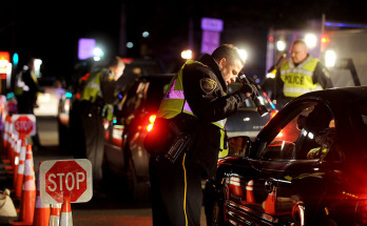In Birchfield, the U.S. Supreme Court made two considerable declarations. The Court first ruled that the Fourth Amendment permits police officers to conduct warrantless breath tests incident to an arrest for drunk driving. However, and much more significantly, the Supreme Court held that the Fourth Amendment does not permit a blood test incident to arrest without a search warrant. The Court’s rationale is rather straightforward: a blood draw in a DUI case is so intrusive that the search warrant is required.
The impact of this ruling is significant, as the Supreme Court has now directed that a search warrant is presumed required if the police want to take the blood of someone suspected of driving under the influence. This means drivers now have a right to refuse to take a blood test (not breath test) absent a validly issued search warrant, and their refusal to take a blood test cannot be the basis for the imposition of criminal penalties. Furthermore, the “implied-consent” laws in Pennsylvania no longer allow police to draw a person’s blood based solely on the fact that they were arrested while driving and suspected of DUI.
While there is some ambiguity in terms of the applicability of the Supreme Court’s ruling and how it is applied in Pennsylvania, as PA does not treat a refusal as a separate crime, one thing is clear: imposing criminal penalties for refusing a warrantless DUI blood test is unconstitutional.
It is worth noting here that, following the Supreme Court’s June 23rd ruling, the Pennsylvania Department of Transportation revised its DL-26 warnings which police read to motorists being asked to submit to a blood alcohol test (blood, urine, or breath) by eliminating all references to criminal penalties for refusal. It is not yet immediately clear the effect Birchfield will have on PennDOT’s ability to issue a one-year license suspension based on a driver’s refusal to submit to a blood test.
It is important to remember that this ruling only directly implicates an individual’s right to refuse to submit to a blood test without a search warrant. Alternatively, and based on the lack of physical intrusion and minimal inconvenience involved, the Supreme Court ruled that search warrants are not required for a breath test. Therefore, officers of this Commonwealth still have the right to demand you submit to a breath test (aka, “breathalyzer”) and do not need to first obtain a search warrant to gain compliance.
It is also important to highlight that even if you’ve been arrested for DUI and informed that refusal to consent to a blood draw would lead to increased penalties, this ruling is not necessarily a “get-out-of-jail-free” card. The State still has the ability to demonstrate general impairment based on the arresting officer’s testimony and other available evidence, and since Pennsylvania does not have a separate crime outlawing refusal to consent to a blood test the impact of Birchfield will (most likely) be felt strongest in the sentencing phase. That being said, the Supreme Court’s rulings in Birchfield will impact the State’s prosecution of DUIs where the only evidence of impairment is from an unconstitutional blood draw.
Whether it is in the conviction or sentencing stage, Birchfield provides significant ammunition to defense attorneys practicing in the Commonwealth of Pennsylvania arguing for suppression of blood-alcohol content evidence and reduced penalties. If you’ve been arrested for driving under the influence in Pennsylvania, the guidance of an attorney skilled in DUI defense is critical. The Criminal Defense Attorneys at Howland Hess O’Connell have extensive experience and knowledge in assisting clients through these matters. If any of the above information applies to you, call for a free consultation at (215)-947-6240 or contact us online to schedule a meeting.
Legal Disclaimer: The contents of this website are intended solely for informational purposes. They neither constitute nor imply an official legal opinion on behalf of Howland, Hess, Guinan, Torpey, Cassidy and O’Connell nor do they establish an attorney-client relationship of any kind. Howland Hess O’Connell encourages all readers to seek and consult professional counsel before acting upon the information contained on this site.

 RSS Feed
RSS Feed